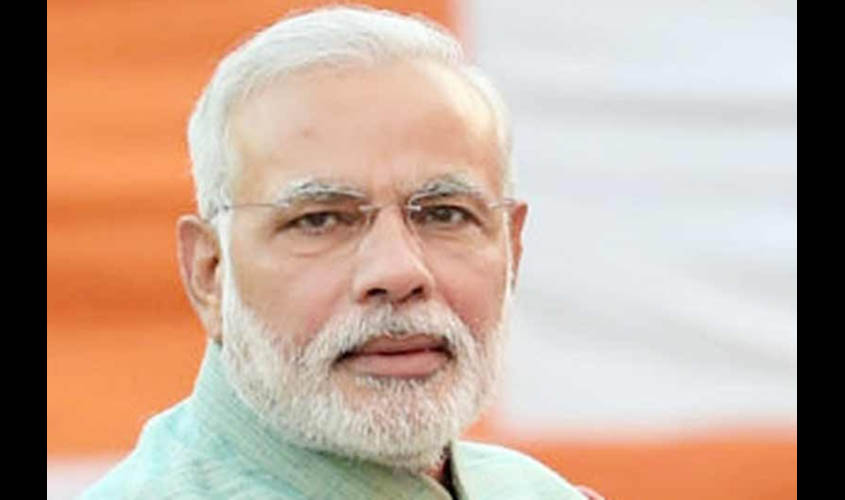Such summits had not been part of Indian foreign policy strategy before 2014.
Under Prime Minister Narendra Modi, India organised four first-time summits that had not been part of Indian foreign policy strategy before 2014. Through these summits, India tied up with developed nations for trade, promised investments in nations that have smaller economies than India and lobbied for its position on the United Nations Security Council and Nuclear Suppliers Group (NSG).
While the Forum for India-Pacific Islands Cooperation (FIPIC) Summit and India-Nordic Summit were organised for the first time ever; the India-Africa Forum Summit-III had the highest outreach than its previous chapters. With the International Solar Alliance (ISA), India facilitated streamlining of developing countries’ narration on climate change.
The Nordic summit organised in April 2018 was the first time ever India engaged in summit level talks with the five Nordic countries, namely Denmark, Finland, Iceland, Norway and Sweden. Sweden being the focus country for India-Nordic relations, the summit allowed India to score crucial innovation partnership.
Several Swedish countries have invested in India for years now. Swedish companies like Swedish Match had come to India in the early 20th century and major Swedish MNCs like Ericsson, Atlas Copco, ABB, Electrolux, Tetra pack, Volvo and H&M have become household names. Ikea is the latest entrant, although for decades, they have been sourcing billions of dollars of products from India for their global stores. However, even with all this co-operation between India and Sweden, the potential remained under-exploited in the absence of a stock-taking mechanism.
The recent April summit helped India score better on that front with the formation of a “Joint Action Plan” as well as signing of an “Innovation Partnership” that is likely to help India with its ambitious Smart City project. The Swedish government will be providing over $59 million for innovation cooperation with India in the field of smart cities and sustainability. The “Joint Action Plan” will help in key areas of renewable energy, women’s skills development, space and science, health and life sciences.
India’s core goal is to benefit from Sweden’s innovation economy for its own “Make in India” campaign. As far as Sweden is concerned, a country that is an ace on most social and economic indexes, seeks a market in India for its advanced technology and defence products.
On the other hand is the FIPIC, organised for the first time in Jaipur in August 2015. The summit meant India investing in island nations that often have economies smaller than an Indian state. Contrary to the Nordic Summit, where India seeks to gain heavy investments, the FIPIC makes India a crucial investor in Pacific Islands.
Until now, India was only an observer in the existing “Forum for Pacific Islands” which was hosted by Fiji and had Australia and New Zealand as well. FIPIC augmented India’s role from an observer to a summit weaver by hosting 14 Pacific Island countries on its land, becoming a front-runner, independent of regional giants like Australia and New Zealand.
The annual grant-in-aid by India to each of these 14 Pacific Island countries is now US$200,000 in solar energy, disaster mitigation, construction, information technology and infrastructure projects. India is also providing 229 slots in the Indian Technical and Economic Cooperation (ITEC) programme and 33 scholarships to the Pacific Island countries. Additional financial assistance of US$400,000 has been extended to Fiji, Vanuatu and Solomon Islands for infrastructure rebuilding and also capacity strengthening in the wake of natural disasters. Also, creation of a one million dollar Adaptation Fund is under the process of implementation.
Indian IT companies are expected to be the true beneficiaries of close bilateral ties with the Pacific Islands since the announcement of tele-medicine and tele-education projects by India, as these countries lack the basic infrastructure for information technology advancements, a department in which India is an out-performer.
India has a total trade of about US$300 million with the Pacific Island countries. The exports are around US$200 million and imports are around US$100 million. The largest country for bilateral trade in this regard is Papua New Guinea because of oil and gas, followed by Fiji.
While the Pacific Islands have a lot to gain from India, India seeks geopolitical relevance in the region where China has been expanding its footprint via trade investments and infrastructure. India also has oil and gas interests; however, the summit failed to make any crucial announcements on that front.
Commenting on the fruitfulness of these summits, Anupam Manur, Assistant Professor, Takshashila Institution, said, “It is a bit early to comment on the precise nature of the successes of the different summits that have been held under the NDA government. The trade and other agreements that are signed with different countries sometimes take years to materialise and bring results. Some of the agreements with the countries are also vaguely defined, which makes it difficult to gauge the outcomes. For instance, the agreements speak about greater cooperation in the field of energy and security or exchange of knowledge and technology in key sectors.”
However, experts agree that these summits have helped India a great deal to initiate dialogue with countries that were often neglected in the past.

